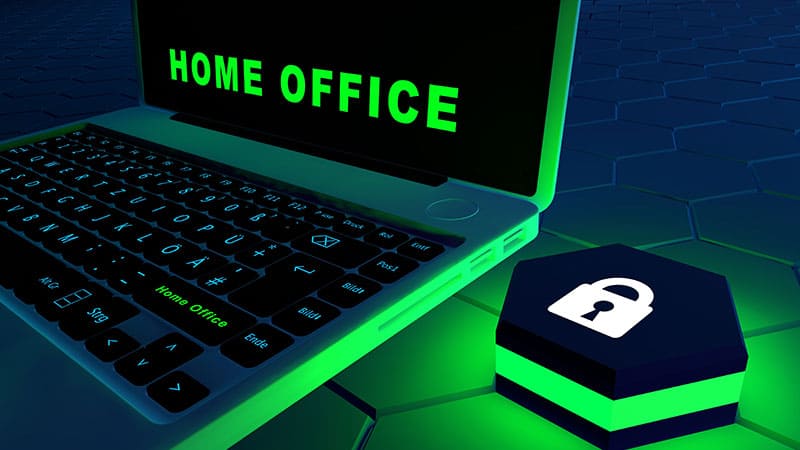The COVID-19 outbreak has forced many organizations to encourage or instruct their employees to work remotely. Besides the need for social distancing at the moment, remote working is still prevalent in the modern, flexible workplace. A recent survey confirmed that globally, 50 percent of employees work outside their main offices for at least two to three days a week.
Shifting from a secure office environment to remote working is a radical change that can expose your organization to unexpected security threats. Opportunistic cybercriminals can take advantage of the situation and your remote working resources to gain access to sensitive corporate data and networks. Seventy-three percent of VCs and C-suite executives polled in a 2019 survey said that remote workers pose a much greater security risk than on-site employees. And it’s easy to see why – you have limited control over how the remote workers behave and access your network and data outside the office walls.
It can be difficult to enforce and maintain robust security controls with more and more employees working remotely. However, you can still seal off critical security loopholes that are well within your reach. Here are three crucial measures to consider when working with a growing number of telecommuters.
Implement Remote-Work Security Plans
Remote working presents unique and difficult security challenges. The best solution is to formulate a security strategy that generally focuses on protecting the identity of the worker and the corporate network.
Set up a thorough Multi-Factor Authentication system that accurately verifies the identity of anyone accessing secured resources and accounts. One-time logins and passwords alone are nowhere near secure enough to guarantee user authenticity in a remote working scenario. Passwords, smartphones, and laptops can be lost or stolen, exposing sensitive authorization credentials.
Remote workers can access your network from any location and internet connection. Many will probably login through unsecured public networks, Wi-Fi, or access points. Malicious hackers can piggyback on compromised nodes to gain access to the main corporate network undetected. To prevent such cases, install a VPN (virtual private network) to maintain end-to-end encryption between the remote devices and the company’s data centers and resource hubs.
Train Your Staff on Cybersecurity Best Practices
Educate your remote employees on observing cybersecurity best practices such as cyber hygiene, using genuine and up-to-date software, and maintaining privacy. In a remote working environment, your employees are the weakest link in the security system. Ensure that they understand the importance of adhering to the recommended and enforced security measures. Also, instill a sense of responsibility for the company’s digital assets by holding the remote employees accountable for their actions.
Don’t Forget About Compliance
Remote working is very different from working on-site. With remote working, the organization is not in full control of the end-user devices and loses the security benefit of working in a physically protected area. In addition, the management doesn’t have the hands-on supervision approach and close contact with the workforce.
As a result, the company may fail to meet both external and internal compliance standards and regulations that require a certain level of security in work practices. Ultimately, the sudden change from on-site to remote working could lead to unintentional non-compliance, which may carry legal, ethical, and political implications.
Check your company policies and procedures, and update them if necessary, to accommodate the unique needs of the remote workforce. Also, get a third-party analyst to assess the status of your network infrastructure’s design and security to ensure acceptable standards are met. Your enterprise might be overwhelmed by the rapid shift in workflow procedures, so it helps a great deal to bring in an unbiased adjudicator to validate the security levels on the corporate network and the proposed policies and tools meant to support remote working.

